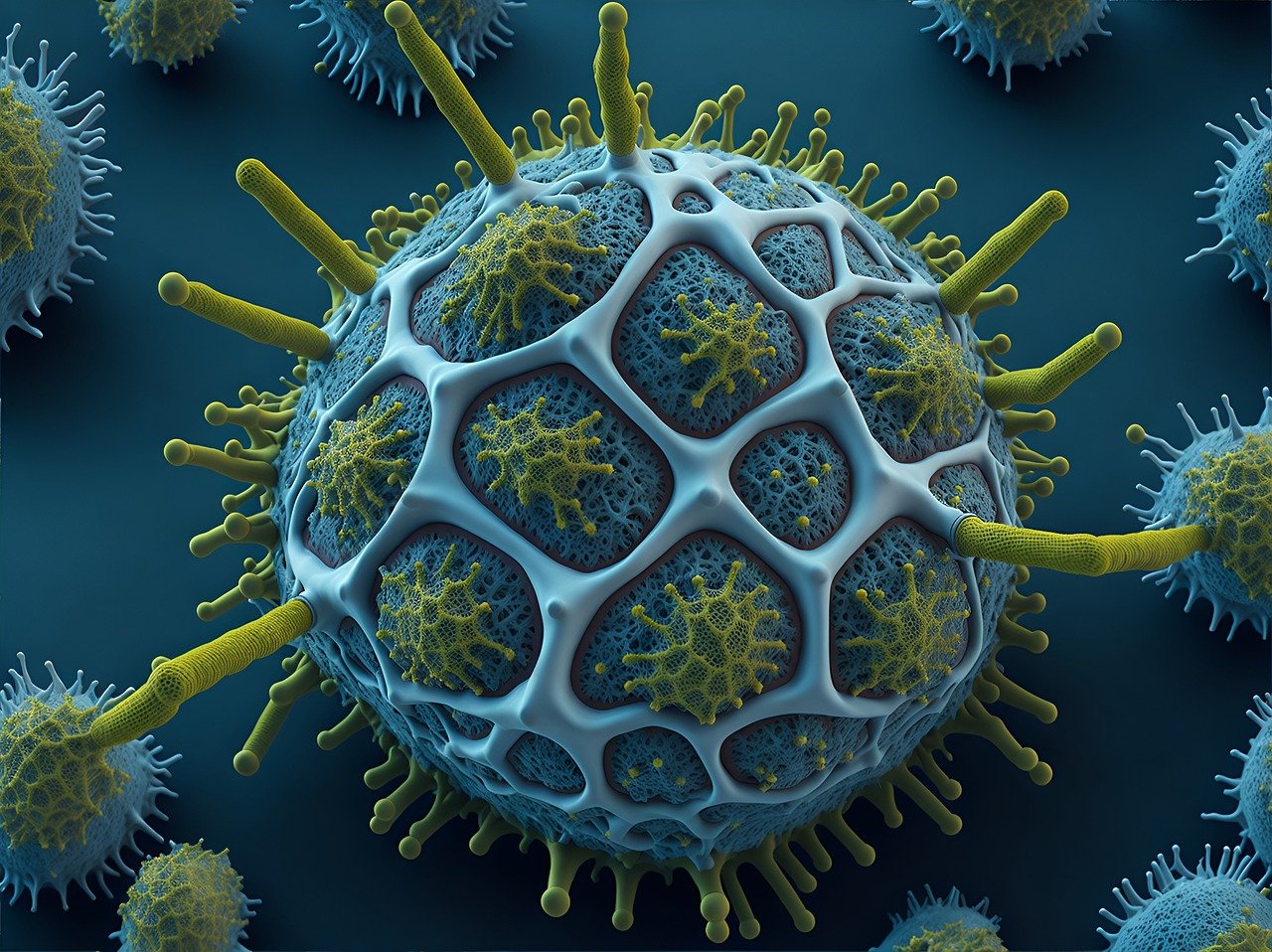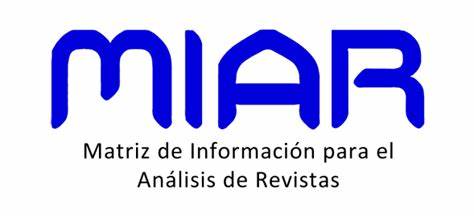Effectiveness of educational interventions to reduce healthcare- associated infections in adult intensive care units: a scoping review
DOI:
https://doi.org/10.54502/msuceva.v3n1a4Palabras clave:
Central venous catheter insertion, checklist, hospital-acquired infections, intensive care units, nosocomial infection, preventionResumen
Healthcare-associated infections (HAIs) represent a serious threat to patients admitted to hospitals and particularly to ICUs, as they contribute to increased mortality, prolonged length of stay and consequently increased healthcare costs. The aim of the present scoping review was to evaluate the effectiveness of educational interventions for the reduction of these infections in the adult ICU. A systematic literature search was conducted from December 2022 to March 2023, making use of official electronic databases such as PubMed, SCOPUS, CINAHL and Cochrane Database of Systematic Reviews; the key terms used for the search were the following: "Healthcare Associated Infections"; "educational interventions"; "intensive care unit" in all possible combinations and making use of the Boolean operators "AND" and "OR"; the application of the PRISMA methodology allowed a final screening of ten[MOU2] (10) studies on which the present review was based. In the selected studies, it was evident that education was essential and should be shared between multidisciplinary care teams, patients, their families, and caregivers. Statistical significance was found in two studies that demonstrated a reduction in HAIs. Despite considerable variation in the duration and type of educational intervention, the importance of establishing continuing education to maintain intervention results.
Descargas
Métricas
Citas
CCO, IAS. Fomites: Possible vehicle of nosocomial infections. Journal of Public Health and Nutrition 2018;1:16–16. DOI: https://doi.org/10.35841/public-health-nutrition.1.1.11-16
https://doi.org/10.35841/public- health-nutrition.1.1.11-16
Wisplinghoff H, Bischoff T, Tallent SM, Seifert H, Wenzel RP, Edmond MB. Nosocomial bloodstream infections in US hospitals: analysis of 24,179 cases from a prospective nationwide surveillance study. Clin Infect Dis 2004;39:309–17. https://doi.org/10.1086/421946 DOI: https://doi.org/10.1086/421946
Secretaría Distrital de Salud de Bogotá. Sistema de vigilancia epidemiológica de infecciones intrahospitalarias. Bogotá, Colombia: 2002.
Liang S, Marschall J. Vital signs: Central line–Associated blood stream infections—United States, 2001, 2008, and 2009. Ann Emerg Med 2011;58:447–50. DOI: https://doi.org/10.1016/j.annemergmed.2011.07.035
https://doi.org/10.1016/j.annemergme d.2011.07.035 DOI: https://doi.org/10.1088/1475-7516/2011/07/035
Instituto Nacional de Salud-INS. Comportamiento de las Infecciones Asociadas a la Atención en Salud en Colombia. Bogotá, Colombia: 2021.
Organización Panamericana de la Salud. Oficina Regional de la Organización Mundial de la Salud Organización. Infecciones hospitalarias. Legislación en América Latina. Bogotá, Colombia: 2007.
https://iris.paho.org/bitstream/handle/10665.2/31312/9789275328637-spa.pdf?sequence=1&isAllowed=y
Trinh TT, Chan PA, Edwards O, Hollenbeck B, Huang B, Burdick N, et al. Peripheral venous catheter- related Staphylococcus aureus bacteremia. Infect Control Hosp Epidemiol 2011;32:579–83. https://doi.org/10.1086/660099 DOI: https://doi.org/10.1086/660099
Pronovost P, Berenholtz S, Dorman T, Lipsett PA, Simmonds T, Haraden C. Improving communication in the ICU using daily goals. J Crit Care 2003;18:71–5. DOI: https://doi.org/10.1053/jcrc.2003.50008
https://doi.org/10.1053/jcrc.2003.500 08
Institute for Health Care Improvement. 5 million live campaign. 2023.
https://www.ihi.org/Engage/Initiatives/Completed/5MillionLivesCampaign/Pages/default.aspx
Fox C, Wavra T, Drake DA, Mulligan D, Bennett YP, Nelson C, et al. Use of a Patient Hand Hygiene Protocol to Reduce Hospital-Acquired Infections and Improve Nurses’ Hand Washing. American Journal of Critical Care 2015;24:216–24. https://doi.org/10.4037/ajcc2015898 DOI: https://doi.org/10.4037/ajcc2015898
Peters MDJ, Marnie C, Tricco AC, Pollock D, Munn Z, Alexander L, et al. Updated methodological guidance for the conduct of scoping reviews. JBI Evid Synth 2020;18:2119–26. https://doi.org/10.11124/JBIES-20- 00167 DOI: https://doi.org/10.11124/JBIES-20-00167
Page MJ, Moher D, Bossuyt PM, Boutron I, Hoffmann TC, Mulrow CD, et al. PRISMA 2020 explanation and elaboration: updated guidance and exemplars for reporting systematic reviews. BMJ 2021;372:n160.
https://doi.org/10.1136/bmj.n160 DOI: https://doi.org/10.1136/bmj.n160
Thandar MM, Matsuoka S, Rahman O, Ota E, Baba T. Infection control teams for reducing healthcare- associated infections in hospitals and other healthcare settings: a protocol for systematic review. BMJ Open 2021;11:e044971. https://doi.org/10.1136/bmjopen- 2020-044971 DOI: https://doi.org/10.1136/bmjopen-2020-044971
Nedelcu V, Zazu M, Mazilu D, Vernic C, Grintescu I. Evaluation of the nurses’ level of knowledge regarding hand hygiene and healthcare-associated infections: a survey. Applied Medical Informatics 2020;42:53–61.
https://ami.info.umfcluj.ro/index.php/AMI/article/view/755
Fletcher-Gutowski S, Cecil J. Is 2- person urinary catheter insertion effective in reducing CAUTI? Am J Infect Control 2019;47:1508–9. https://doi.org/10.1016/j.ajic.2019.05. 014 DOI: https://doi.org/10.1016/j.ajic.2019.05.014
Park S-W, Ko S, An H, Bang JH, Chung W-Y. Implementation of central line-associated bloodstream infection prevention bundles in a surgical intensive care unit using peer tutoring. Antimicrob Resist Infect Control 2017;6:103. https://doi.org/10.1186/s13756-017- 0263-3 DOI: https://doi.org/10.1186/s13756-017-0263-3
Septimus EJ, Moody J. Prevention of Device-Related Healthcare- Associated Infections. F1000Res 2016;5:65. DOI: https://doi.org/10.12688/f1000research.7493.1
https://doi.org/10.12688/f1000researc h.7493.1
Yokoe DS, Anderson DJ, Berenholtz SM, Calfee DP, Dubberke ER, Ellingson KD, et al. A Compendium of Strategies to Prevent Healthcare- Associated Infections in Acute Care Hospitals: 2014 Updates. Infect Control Hosp Epidemiol 2014;35:967–77. https://doi.org/10.1086/677216 DOI: https://doi.org/10.1086/675819
Perin DC, Erdmann AL, Higashi GDC, Sasso GTMD. Evidence-based measures to prevent central line- associated bloodstream infections: a systematic review. Rev Lat Am Enfermagem 2016;24. https://doi.org/10.1590/1518- 8345.1233.2787 DOI: https://doi.org/10.1590/1518-8345.1233.2787
Centofanti JE, Duan EH, Hoad NC, Swinton ME, Perri D, Waugh L, et al. Use of a Daily Goals Checklist for Morning ICU Rounds. Crit Care Med 2014;42:1797–803. DOI: https://doi.org/10.1097/CCM.0000000000000331
https://doi.org/10.1097/CCM.0000000 000000331
McAlearney AS, MacEwan SR, Gregory ME, Sova LN, Hebert C, Gaughan AA. Identifying management practices for promoting infection prevention: Perspectives on strategic communication. Am J Infect Control 2022;50:593–7. DOI: https://doi.org/10.1016/j.ajic.2021.11.025
https://doi.org/10.1016/j.ajic.2021.11. 025
Foka M, Nicolaou E, Kyprianou T, Palazis L, Kyranou M, Papathanassoglou E, et al. Prevention of Central Line-Associated Bloodstream Infections Through Educational Interventions in Adult Intensive Care Units: A Systematic Review. Cureus 2021. https://doi.org/10.7759/cureus.17293 DOI: https://doi.org/10.7759/cureus.17293
Mastrandrea G, Giuliani R, Graps EA. International good practices on central venous catheters’ placement and daily management in adults and on educational interventions addressed to healthcare professionals or awake/outpatients. Results of a scoping review compared with the existent Italian good practices. Front Med (Lausanne) 2022;9. https://doi.org/10.3389/fmed.2022.94 3164 DOI: https://doi.org/10.3389/fmed.2022.943164
Rosenthal VD, Maki DG, Jamulitrat S, Medeiros EA, Todi SK, Gomez DY, et al. International Nosocomial Infection Control Consortium (INICC) report, data summary for 2003-2008, issued June 2009. Am J Infect Control 2010;38:95-104.e2. DOI: https://doi.org/10.1016/j.ajic.2009.12.004
https://doi.org/10.1016/j.ajic.2009.12. 004
Jarvis WR. Selected aspects of the socioeconomic impact of nosocomial infections: morbidity, mortality, cost, and prevention. Infect Control Hosp Epidemiol 1996;17:552–7. https://doi.org/10.1086/647371 DOI: https://doi.org/10.1086/647371
Larypoor M, Frsad S. Evaluation of nosocomial infections in one of hospitals of Qom, 2008. Iran J Med Microbiol 2011;5:7–17. https://ijmm.ir/article-1-194-en.html
Sociedad Española de Medicina Preventiva Salud Pública e Higiene. Estudio EPINE-EPPS no 29: 2018. Informe España Prevalencia de infecciones (relacionadas con la asistencia sanitaria y comunitarias) y uso de antimicrobianos en hospitales de agudos. 2019.
https://www.epine.es/docs/public/reports/esp/2018%20EPINE%20Informe%20Espa%C3%B1a.pdf
González Aguilera J, Fonseca Muñoz J, González Pompa J, Rosabal Rosales D, Marín Montejo L. Infección relacionada con los cuidados sanitarios en la unidad de cuidados intensivos. MULTIMED 2012;16:434–47. https://revmultimed.sld.cu/index.php/mtm/article/view/529/862
Li G, Walker MJ, De Oliveira DMP. Vancomycin Resistance in Enterococcus and Staphylococcus aureus. Microorganisms 2022;11:24. https://doi.org/10.3390/microorganis ms11010024 DOI: https://doi.org/10.3390/microorganisms11010024
Ibrahim EH, Sherman G, Ward S, Fraser VJ, Kollef MH. The influence of inadequate antimicrobial treatment of bloodstream infections on patient outcomes in the ICU setting. Chest 2000;118:146–55. https://doi.org/10.1378/chest.118.1.14 6 DOI: https://doi.org/10.1378/chest.118.1.146
McAlearney AS, Robbins J, Garman AN, Song PH. Implementing high- performance work practices in healthcare organizations: qualitative and conceptual evidence. J Health Manag 2013;58:446–62. PMID: 24400459. DOI: https://doi.org/10.1097/00115514-201311000-00011
Millward S, Barnett J, Thomlinson D. A clinical infection control audit programme: evaluation of an audit tool used by infection control nurses to monitor standards and assess effective staff training. J Hosp Infect 1993;24:219–32. DOI: https://doi.org/10.1016/0195-6701(93)90051-Z
https://doi.org/10.1016/0195- 6701(93)90051-z
Pittet D, Simon A, Hugonnet S, Pessoa-Silva CL, Sauvan V, Perneger T V. Hand Hygiene among Physicians: Performance, Beliefs, and Perceptions. Ann Intern Med 2004;141:1. https://doi.org/10.7326/0003-4819- 141-1-200407060-00008 DOI: https://doi.org/10.7326/0003-4819-141-1-200407060-00008
Moreau KA, Eady K, Sikora L, Horsley T. Digital storytelling in health professions education: a systematic review. BMC Med Educ 2018;18:208. https://doi.org/10.1186/s12909-018- 1320-1 DOI: https://doi.org/10.1186/s12909-018-1320-1
Varkey P. Educating to Improve Patient Care: Integrating Quality Improvement Into a Medical School Curriculum. American Journal of Medical Quality 2007;22:112–6. https://doi.org/10.1177/10628606062 98338 DOI: https://doi.org/10.1177/1062860606298338
Chen M, Bell RA. A meta-analysis of the impact of point of view on narrative processing and persuasion in health messaging. Psychol Health 2021:1–18. https://doi.org/10.1080/08870446.202 1.1894331 DOI: https://doi.org/10.1080/08870446.2021.1894331
Fridkin SK, Pear SM, Williamson TH, Galgiani JN, Jarvis WR. The Role of Understaffing in Central Venous Catheter-Associated Bloodstream Infections. Infect Control Hosp Epidemiol 1996;17:150–8. https://doi.org/10.1086/647262 DOI: https://doi.org/10.1086/647262

Descargas
Publicado
Cómo citar
Número
Sección
Licencia
Derechos de autor 2023 Díaz Salazar J., Castro MM., Solorzano Alarcón M

Esta obra está bajo una licencia internacional Creative Commons Atribución-NoComercial-SinDerivadas 4.0.
Magna Scientia UCEVA proporciona un acceso abierto, libre y gratuito a su contenido, basado en el principio de que ofrecer al público un acceso libre a las investigaciones, ayuda a un mayor intercambio global del conocimiento. Lo cual, implica que los usuarios pueden leer, descargar, almacenar, imprimir, buscar, indexar y realizar enlaces a los textos completos de esta revista. Se permite distribuir los diversos artículos en las versiones post-print y oficial, sin previo permiso del autor o editor, considerando que el fin de este, no implica fines comerciales, ni la generación de obras derivadas; Solo se solicita la mención de la fuente así como la autoría. El titular del copyright será el o los autores que publiquen en Magna Scientia UCEVA.
Magna Scientia UCEVA está distribuida bajo los términos de la licencia https://creativecommons.org/licenses/by-nc-nd/4.0/deed.es




















